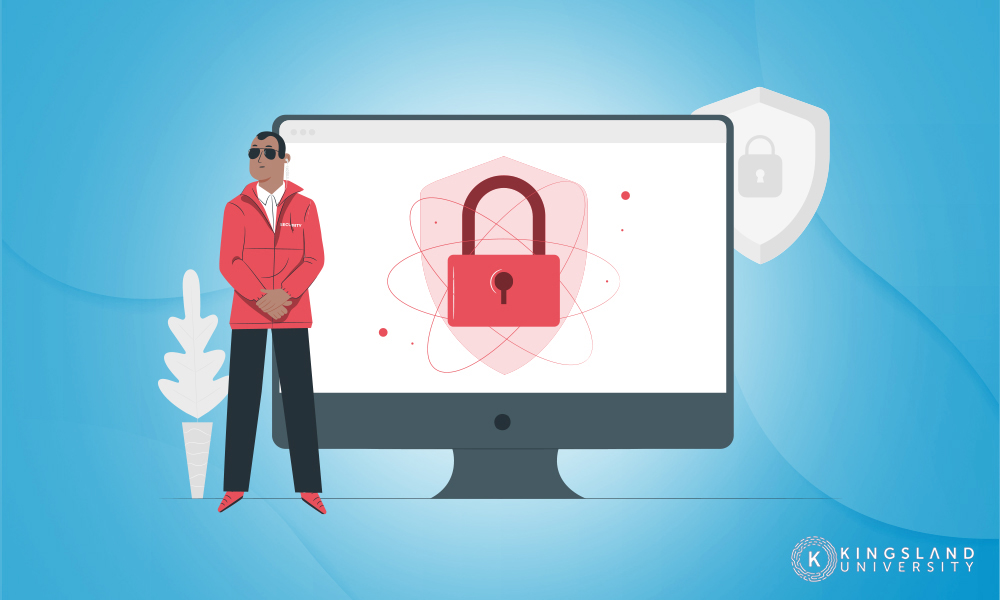
Job security is a concern that plagues virtually every American in the 21st Century. In our society, supply and demand dictate the rate at which careers open and if existing positions will continue to survive. One position that enjoys a great deal of job security is that of cybersecurity personnel.
In a world where more and more common interactions and transactions now occur online, cybersecurity has become one of the most vital resources available to us. The professionals involved in upholding it are a coveted resource. That said, in order to understand how secure a position is, it helps to understand what the job itself entails. With all this in mind, here are some of the relevant factors to the job security of cybersecurity professionals.
What is Cybersecurity?
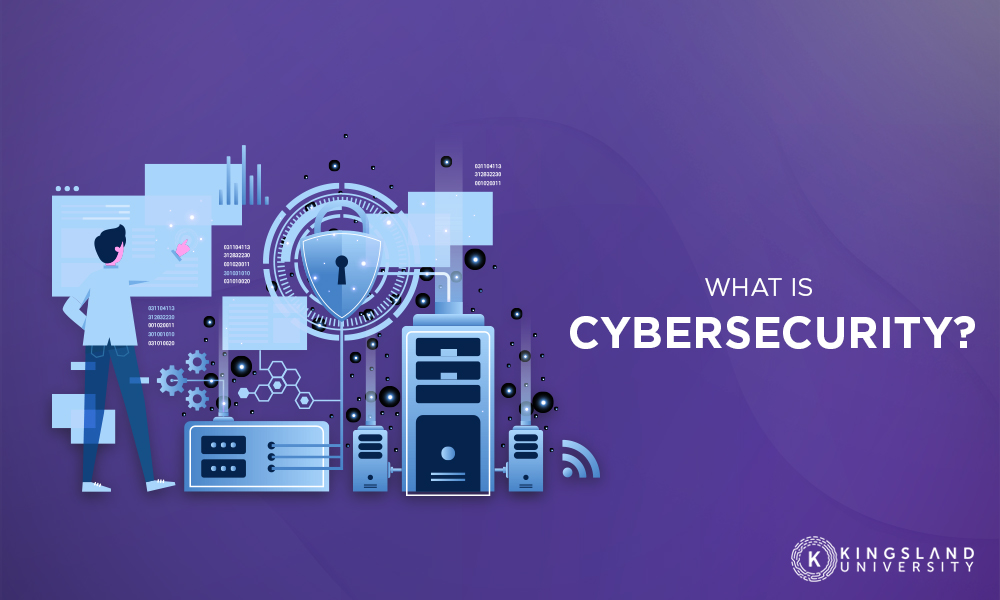
Cybersecurity refers to the protection of networks, devices, and data from being accessed by unauthorized users to ensure the integrity of one’s personal information and keep it out of the wrong hands. Given that virtually every electronic device at our disposal today has some connection to the internet, it becomes vital to protect your information as more and more unsavory characters seek to steal and abuse the information of others for their own financial gain.
Everything from your credit card information – stored on e-commerce websites like Amazon – to your physical location denoted by your favorite GPS application links to the internet in some way that puts that information on the cloud for access by the application itself. Yet, with a robust enough cybersecurity system, you can protect this information from being accessed by anyone other than the parties involved.
Cybersecurity firms consist of teams of security software engineers under the auspices of software architects who create antiviral and malware detection software to identify and eliminate cyber-attacks on privileged or private information. These teams are constantly working to identify weaknesses and vulnerabilities in firewalls, operating systems, or applications that make them susceptible to threats that jeopardize the privacy and security of users and take measures to correct or prevent them.
Cybersecurity as a profession is only growing more important with each passing year. Here’s a rundown of the factors contributing to this career growth.
1. The Threats
The main question you need to ask yourself is, what kinds of threats warrant the need for cybersecurity? The list is long and more than a little intimidating as we become more and more reliant on the internet for virtually everything we do.
- Hackers: One of the most referenced threats to the security of personal data is hackers. These are individuals with a knack for computers and programming who orient their skills towards exploiting holes in firewalls and bypassing security to access the personal information of their targets.
- Viruses: Another major threat hides in plain sight. You might have installed a free game or application onto your device only to have your data lost or stolen as the result of a virus hidden in the application’s files. These viruses can be hidden in just about anything and cannot be detected without scanning the files for telltale viral code.
- Software Vulnerabilities: As previously mentioned, hackers tend to target holes in standard firewalls to access your information. These holes are generally the result of programming errors or simple oversights in the program that make them vulnerable to exploitation by hackers and viruses alike, making an extra layer of security a must.
- Ransomware. One of the more recent growing threats, ransomware exploits security holes to encrypt your data and demand a monetary ransom to decrypt it.
These threats are among the most common in existence in the digital age. And they are not liable to vanish anytime soon, given our society’s continued reliance on the cloud. This leaves us with the question of how to defend against these threats.
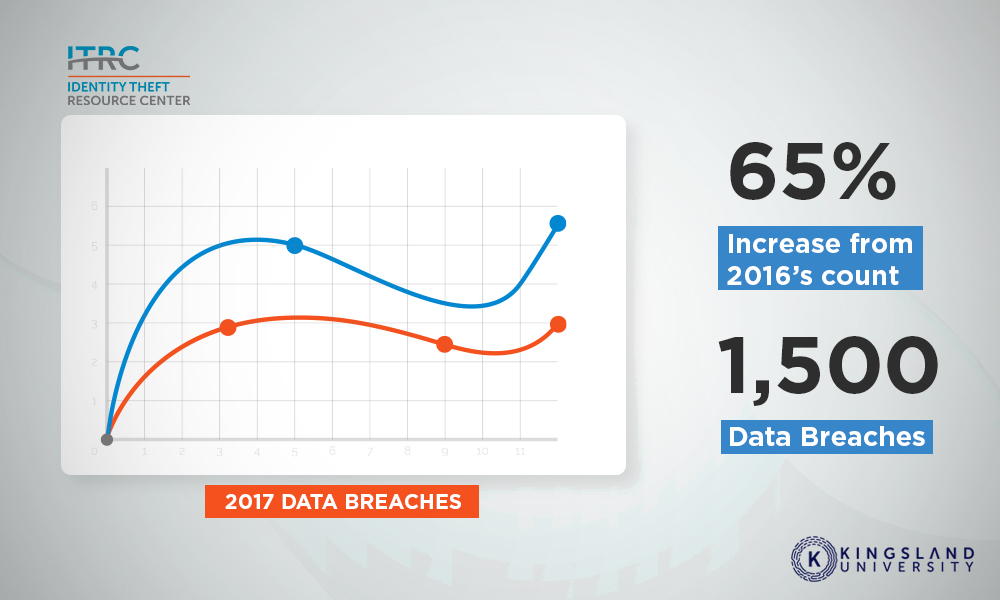
According to a survey conducted in 2018, it was projected that there would be 3,500,000 professional cybersecurity positions available by this year but no professionals with which to fill them. The reason for this discrepancy is that not enough people exist with the skillset necessary to manage the responsibilities of cybersecurity professionals, regardless of the specific role. A report by the Identity Theft Resource Center further explained that, in 2017, there were over 1,500 data breaches of private databases in a 65% increase from 2016’s count.
In 2018, hackers managed to breach the Marriott reservations database, absconding with the names, addresses, credit card numbers, and passport numbers of over 300,000,000 guests. This catastrophic systems breach placed the Marriott hack at the 4th place spot of the country’s top five largest data breaches. The worst systems breach at the time occurred in the 2013/2014 fiscal year against Yahoo and affected billions of users.
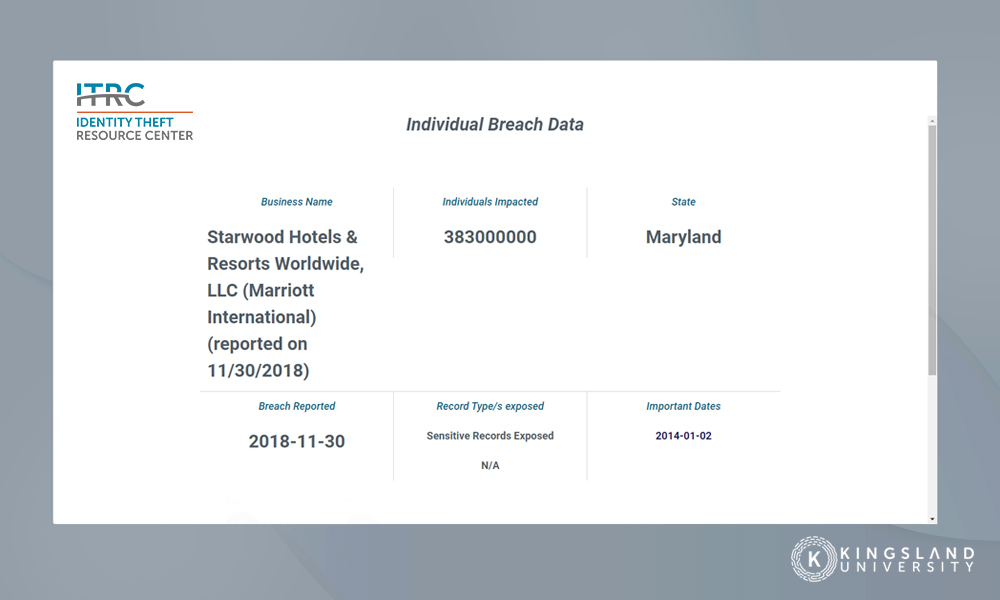
More recently, the Irish adult entertainment website CAM4 suffered a major security breach in 2020 that leaked the names, e-mail addresses, payment information, and more of over 10.88 billion users.
2. Employer Count
There are a veritable plethora of cybersecurity firms from which to choose, making finding the right one something of a hassle. Fortunately, cybersecurity is such an expansive industry that the reputations of most firms precede them and are ranked annually.
As of 2020, per The Software Report, the top 5 cybersecurity firms are as follows:
- McAfee: McAfee offers excellent threat detection and management software for personal computers and mobile devices. McAfee is now a globally used cybersecurity software for corporate and consumer systems alike.
- Palo Alto Networks: Like McAfee, Palo Alto offers threat detection and management software and recently added a new 5G security system for its users.
- LexisNexis Risk Solutions: LexisNexis specializes in risk management software, evaluating risks before they become an issue and serving as a fraud intelligence software.
- CrowdStrike: CrowdStrike is an endpoint security system, meaning it defends systems from wireless devices in the hands of consumers. It is listed as the premier cybersecurity firm for the energy industry, protecting the personal information of clients of major power companies across the U.S., Europe, and India.
- SecureWorks: Another threat detection and management system, SecureWorks is known for its more automated security algorithms that use machine learning to make the system compatible with supplementary third-party systems.
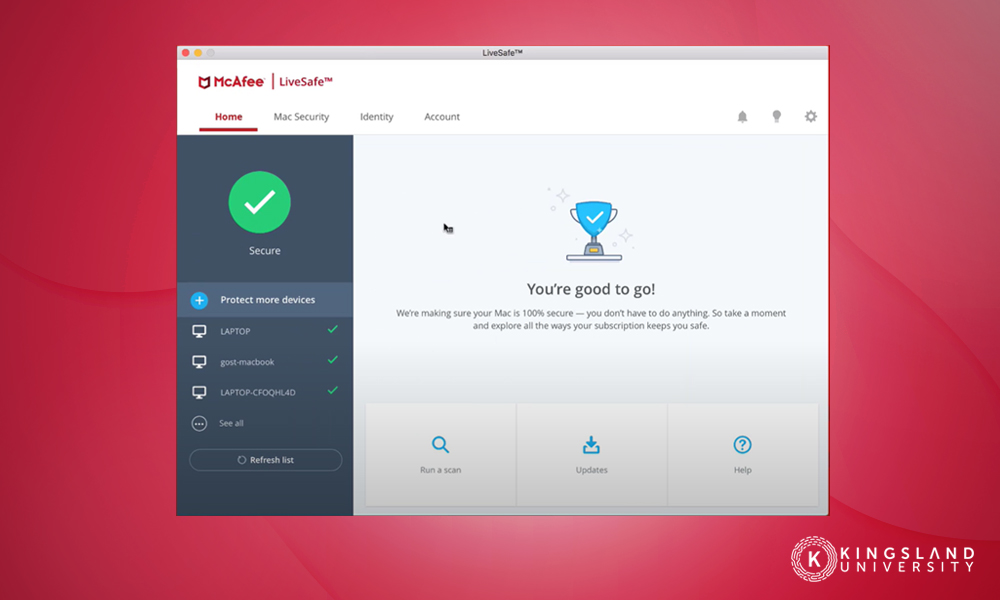
These are just five of countless cybersecurity firms and applications currently in circulation today. Even more cybersecurity positions exist as direct client positions, where cybersecurity professionals are hired as full-time staff to a potential client to protect their databases against outside threats. Some of the most influential and appealing clients use cybersecurity staff to create their own security measures rather than outsourcing to one of the above companies. For example:
- Lockheed Martin: An aerospace corporation responsible for the manufacture of aircraft and defense technology, Lockheed employs over 110,000 people with a specific need for cybersecurity staff to protect classified schematics.
- Apple: Renowned for its use of proprietary cybersecurity systems in almost all its products, Apple hires new cybersecurity staff to help advance the measures set in place to protect iTunes and iCloud information.
- Capital One: One of the largest U.S. banking institutions, the need for cybersecurity personnel is never more critical than when safeguarding clients’ finances. Cybersecurity experts will always find a home protecting financial data.
- Cisco: A multinational technology company, Cisco creates software, hardware, and telecommunications equipment. Cybersecurity professionals are hired to protect their software from exploitation after being released for use by their clients, making it a more long-term position for live-service cybersecurity.
The more of us there are online, the more cybersecurity firms will continue to grow to meet the needs of the growing customer base. As the threats continue to evolve, so too will the defenses against them.
3. (Lack of) Supply and Demand
When working in the cybersecurity industry, there are more than a few positions available, depending on the role you would be taking on. Everything from analysts to engineers who help maintain and update cybersecurity systems to match the threats as they grow. As a result, there is an overwhelming demand for cybersecurity programs, and by extension, personnel.
The major security breaches mentioned previously revealed the need for more professionals capable of engineering and maintaining security software to block potential breaches, which means two things. The first is that the demand for cybersecurity professionals has only increased since 2016. The second is that the indispensable nature of cybersecurity indicates long-term employment for those with the qualifications to do so.
The lack of professional cybersecurity staff can likely be tied back to the intense requirements to qualify as a professional. According to employment listings on hiring websites like Indeed, a cybersecurity staff member may be expected to have a bachelor’s degree in computer science or information technology (IT) at minimum to qualify for entry-level positions.
4. The Stress
Due to the intense nature of cybersecurity and the fact that criminal exploitation of firewall vulnerabilities is not beholden to a schedule, it is rare for an employee of a cybersecurity firm to have a weekend off. Add on the high-stress impact of having entire companies’ worth of protected information or an individual’s entire personal portfolio under your protection, and cybersecurity becomes one of the most stressful careers on the planet.
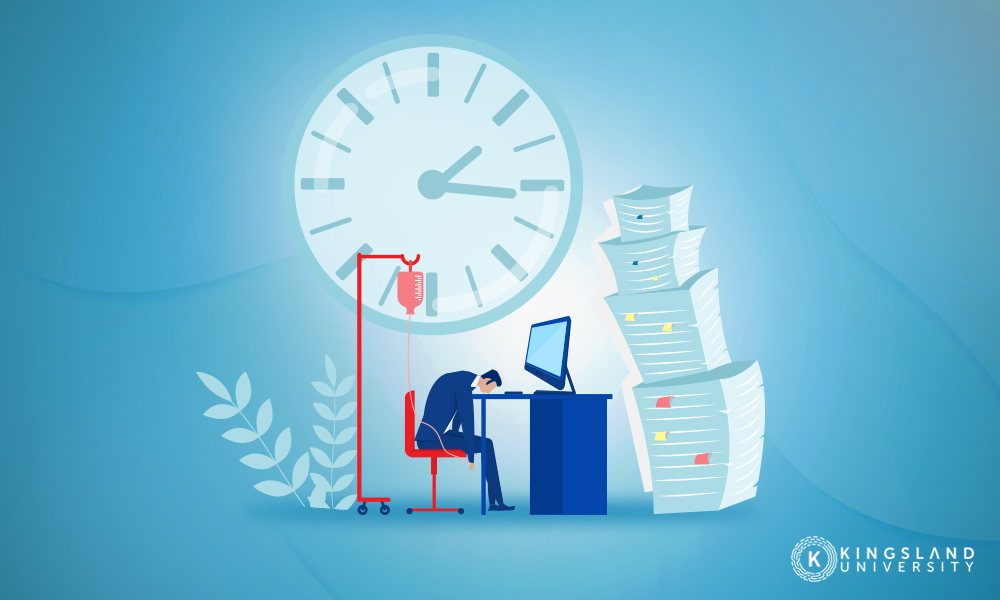
Aside from the educational requirements, the workload associated with cybersecurity staff is no laughing matter as weekends are often sacrificed due to cybercrimes being committed regardless of the day of the week. The cybersecurity personnel is expected to be on call 24/7, which is an extremely stressful condition of employment.
This stress contributes to the lack of personnel capable of maintaining positions in cybersecurity and weeds out those who are incapable of handling such stress. Due to the stressful nature of the career and the lack of individuals capable of coping with it, employees who can fulfill the requirements are desired in high demand.
5. The Rewards
While life as a cybersecurity professional is stressful and intense, it is not without its rewards. As listed in our previous blog post, the positions available for cybersecurity staff are awarded significant pay.

- Chief Information Security Officer (CISO): The CISO of a cybersecurity firm are not quite as responsible for the front-line maintenance of cybersecurity applications but instead focus their efforts on maintaining a complete overview of their firm’s efforts. CISOs are responsible for real-time analysis of security threats, overseeing the staff to prevent abuse of client information, investigating all failures or breaches of security on their part, and more. While a daunting position, CISOs average over $160,000 a year.
- Cyber Security Architect: Security architects, as the name implies, are responsible for the design and development of a computer system’s security. Architects need to think like the hackers they aim to thwart and design software to counter the tactics they consider, all while reporting directly to the CISO of their firm. Architects are also responsible for identifying what went wrong if a system should fail to prevent a breach. For their efforts, security architects earn an average of over $146,000 a year.
- Security Software Developer: Security software developers are the specialized software developers of the cybersecurity industry, responsible for both front-end and back-end development. They focus on making the software secure in its functionality rather than developing the user interface and develop the software in a state of mind that promotes creating more secure software. On average, these developers make around $130,000 a year.
- Network Security Engineer: Security engineers are the more common cybersecurity personnel, developing and supervising the security systems in place and acting as first responders to stem the tide of breaches into databases. Despite being something of a “grunt” in relation to cybersecurity staff, engineers average over $116,000 a year.
These pay grades are only a rough mean of the potential earnings cybersecurity professionals earn. As experience is gained and seniority at a firm or IT department is achieved, professionals easily break these numbers and enjoy financial security.
6. It Is Mandatory
There are more than a few industries in which maintaining a healthy cybersecurity team is not an option but a requirement. The most obvious examples are law firms, banks, and hospitals due to the sensitive information they handle daily.
In hospitals and healthcare facilities, the personal information they store regarding their patients is protected by Health Information Privacy (HIPAA), a federal statute introduced to allow the communication of medical information while respecting the patient’s right to discretion. HIPAA violations are an extremely serious federal crime, mandating the utmost security to protect the information. To that end, cybersecurity helps protect these files, which are now digitized for ease of access.

Similar privacy protections exist for attorneys’ legal documentation, and an individual’s personal finances are meant to remain personal by law. In all of these instances, the need for cybersecurity is not a matter of choice.
The Security of Cybersecurity
With all of this in mind, everything still comes down to job security. The demand for cybersecurity staff in a world where the supply is minimal is exceptionally high. According to an assessment by the Bureau of Labor Statistics, the growth rate for cybersecurity positions as of 2019 is 31%, which is much faster than the national average.
In addition, the same assessment indicates that, as of 2019, nearly 41,000 new cybersecurity positions are expected to open every year until 2029. Coupling the consistent growth of the industry with the lack of professionals available to fill them, prospective cybersecurity employees will enjoy excellent benefits and plentiful opportunities not available to other industries. Programs like ours can get you started in the right direction.

The fact that the cybersecurity industry is still in its infancy means it will continue to grow and evolve as new threats to digital security present themselves. New software and operating systems will lead to the need for more security measures to protect them. With the way businesses are trending towards a remote and online workforce, the demand for talented cybersecurity personnel will only increase over the next few years. A talent shortage is just about the best job security you can get.


